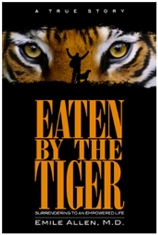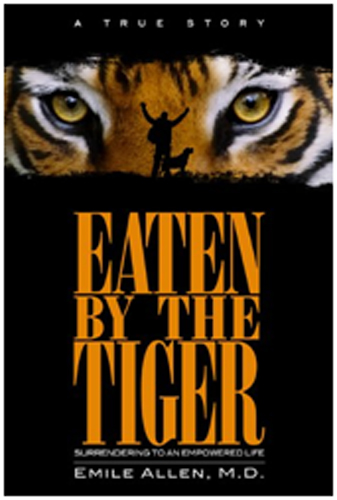
By Mary Jane Dittmar
 Is that all there is in life? Is that it? The philosophical among us may have pondered these questions from time to time as an exercise in self-awareness. In fact, a best-selling song by Peggy Lee decades ago was entitled, “Is That All There Is?” These questions, however, are much more significant and poignant when raised in conjunction with a life crisis or when an unexpected and drastic curve in our life has derailed us. How would you react at such a time? How would I react? We really cannot realistically and honestly answer these questions when we are not in such dire circumstances and the situation is hypothetical.
Is that all there is in life? Is that it? The philosophical among us may have pondered these questions from time to time as an exercise in self-awareness. In fact, a best-selling song by Peggy Lee decades ago was entitled, “Is That All There Is?” These questions, however, are much more significant and poignant when raised in conjunction with a life crisis or when an unexpected and drastic curve in our life has derailed us. How would you react at such a time? How would I react? We really cannot realistically and honestly answer these questions when we are not in such dire circumstances and the situation is hypothetical.
We are looking into the personal journey of Emile Allen, M.D., a successful urologist, who suddenly was faced with such decisions, as he describes it in Eaten by the Tiger. The odyssey begins with an accident that occurs in the operating room as he is preparing to operate, as he had done many times before.
It is a cold, snowy day on February 26, 1998, and, for Dr. Allen, begins as a routine day. As he operates, the electrical scalpel in his right hand suddenly makes a large popping sound, and an arc of electricity shoots out. It blows through the patient’s bowel and into his left finger, courses up his arm, and— as he found out the next day—through his heart and brain, and exits out of his right ankle. The electrical force throws him back approximately six to eight feet. He collapses onto the operating room floor.
The following is summarized from Dr. Allen’s account of the incident as told in Eaten by the Tiger.
All in the room are stunned. When he hits the floor, he is screaming in pain and holding his hand. He sees blood quickly filling up his surgical glove. The nonstop burning pain is excruciating. The pain is radiating up his arm and through his shoulder. He keeps screaming, begging someone to stop the pain.
A staff nurse takes off the gloves and pours sterile saline solution over his hand. The wound is a burn about the size of a pinhead on his middle finger. How could such a small wound cause so much damage? An artery is pumping bright red blood from the first joint of his finger. The nurse places pressure on it while he continues to scream in pain.
He feels cold, clammy, and weak. He rapidly goes into shock. He has a seizure on the cold, sterile operating room floor. The staff members in the room call a CODE and for the crash cart. Then the room becomes quiet; everything goes dark. The physical suffering vanishes, and he feels at peace.
During this time in the darkness, Dr. Allen hears a voice say, ‘I’m not ready for you yet. You have more work to do.” Dr. Allen explains: “The voice came from an amorphous figure, an ill-defined shape of a person’s face that came out of the shadows and entered my right upper visual field. I couldn’t tell if the voice was that of a man or a woman. I just heard the voice. Again, it said, ‘I’m not ready for you yet. You have more work to do.’”
He awakens suddenly to the unbearable pain, which is even more intense than before.
The author did not know it at the time, but this chain of events was to lead him on a “transformative journey of self-discovery.”
Dr. Allen extends an invitation to the reader: “Travel this magnetic journey with me as I show you the path to accept and overcome life’s challenges, whether they are emotional, physical, or financial. Eaten by the Tiger provides you with the key that opens the door to a more empowered life.”
It was by no means an effortless journey. He had to cope with diagnoses of traumatic brain injury, post-traumatic stress disorder, loss of cognitive function, seizures, debilitating migraine headaches, reflex sympathetic dystrophy, left hand numbness, difficulties with fine motor coordination, and severe atrophy of his left arm and hand. By his own admission: “Life was not looking so great.”
He was scared and “trying to hold onto what little identify he had left as a physician and surgeon. He didn’t know what he was going to do or could do with his life. He wondered: “What career can I have that still uses my medical background? Would the seizures ever stop? What about the excruciating pain in my arm and hand? Would I regain function?”
His losses were staggering. “I was grieving. I was mourning a huge list of losses: my freedom and independence, career, status in the community, patients, home, lifestyle, and my significance as a man. I lost so many things, and all at the same time,” recounts Dr. Allen.
He was too fragile emotionally and physically to withstand the stress of human interaction. He felt that each new listener to his situation would trample on his self-esteem. He couldn’t do simple math skills, not even count change.
It took three years before he could read a book from cover to cover. He signed up for art classes and began searching for his niche. A new set of questions emerged: “Who is Emile? What is my identity? What am I supposed to do with my life?”
The changes that overtook his life forced him to live with his parents for a couple of years, undergo physical therapy, and to have to learn how to live without addictive pain medications. He wanted to go from victim to victor of his life.
Eventually, he discovered that he could still find enjoyment in things, as before, and he chose to accept the fact that he would need to start over again to create a new life and a new identity.
“Grieving is intensely personal and unique to each individual,” Dr. Allen says. “You can’t bypass the grief stage.”
Dr. Allen’s life was overturned once again when his father, his dear friend and model and source of strength, died of cancer. This loss caused Dr. Allen to feel as if “the foundation of his life was crumbling once again.” He heard an internal voice saying, “You’re alone on this earth. You’re not good enough. You’re a failure, and you’ll never be the success you once were.”
It was not until Dr. Allen later went to Fiji for a yogic spiritual retreat with some friends that he found the answer that would put him back on the path of self-empowerment.
During his soul-searching in Fiji, he came to identify and face head-on those things that impeded him in his quest to find new life. With the guidance of a spiritual counselor, he learned the principles of “simple, unencumbered living” and gained “a new perspective on various life concepts.” Among them were the following:
- Many never fulfill their dreams and allow opportunities to pass them by because they are paralyzed by fear of the unknown. This fear for Dr. Allen was the “The Tiger.” As he learned to face The Tiger head-on and embrace it, he became “empowered to reach levels of awareness he never knew existed.”
- He had been in fear of The Tiger for so many years. Now, he had finally let go and had faith that God would catch him: He chose to be “eaten by The Tiger.”
- His fears and pain kept him frozen and he had gone from “fighting for his life to surrendering his life.” He realized that he had no control over the past. By letting go of his past, he became “empowered to open his hands to receive the gifts of opportunity.” Fighting for control in his life was disempowering, whereas responding, not reacting, to a situation on his terms was empowering. Surrendering forced him to face his fears in order to find the inner strength to overcome life’s adversities.
“If there is one message you take away from this book, Dr. Allen says, “it is this: Your suffering will end when you learn to let go of your attachments and stop judging yourself and others.”
Other Revelations
There are so many life-renewing observations Dr. Allen shares with the readers, such as the following:
- Loss is a part of life. It is normal to question why we lose something or someone precious to us. This is natural. However, the better question is, ‘What else could this mean?’ We can start looking for all the things that are positive, all the lessons to be learned, and all the good that can come out of a tragedy.
- In every moment, you have the choice to become aware, accept, let go, have faith, release judgments, be grateful, and allow the lessons learned to transform your life.
- There is no chance for a meaningful or successful life when we freeze. He explains, “Instead of letting go of the judgments and allowing new doors to open, I used to focus on all the closed doors.”
- When you’re in the freeze mode, it’s vital to remember that it doesn’t matter if you do something right or wrong. Just do something. You can correct it later if needed. Going down the wrong path is better than being frozen in place. … My world changed completely when I released self-created deadlines, materialistic things, and relationships that no longer served me.
It was not enough simply to recognize these lessons. It was necessary to determine how to apply theme very day in order to improve my life. Sometimes we don’t recognize the lessons available while we are going through difficult circumstances. They can lay dormant for months or even years until another event triggers us to reevaluate previous struggles.
Although we can’t avoid life’s problems, we can decide whether we will respond to them in a way that empowers us or react to them as a victim; it is our choice.
Life is a culmination of random events that can become lessons if you recognize the true gifts in them. You don’t have to know exactly how the pieces of the puzzle are going to fit together. Simply know that whatever happens in your life, whether good or bad, it is part of the ultimate plan.
The process is never over. That is a gift, too, because each day you get a do-over.
Moments of reflections may come when you least expect them. They can float in gently or, at times, shock us into reality.
Visit Dr. Allen at EatenByTheTiger.com or follow his journey at: Facebook.com/ authorEmileAllenMD; Twitter.com/EmileAllenMD
Eaten by the Tiger: Surrendering to an Empowered Life
Emile Allen, M.D
Inspire On Purpose Publishing, Irving, TX htt://inspireonpurpose.com
Ascot Media Group, Inc. http://ascotmedia.com

Mary Jane Dittmar is senior associate editor of Fire Engineering and conference manager of FDIC. Before joining the magazine in January 1991, she served as editor of a trade magazine in the health/nutrition market and held various positions in the educational and medical advertising fields. She has a bachelor’s degree in English/journalism and a master’s degree in communication arts.

